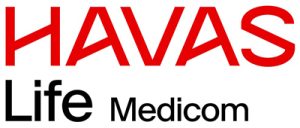Crisis? No problem!
September 24, 2020 |
Issues planning & management for pharma spokespeople, by Andrew Smith
It’s the closest real life has come to that nightmare where you’re sitting an exam and realize you’re naked. During a major medical congress, you’re about to sit down for a series of media interviews. You have a clear story to tell about how your new data positions your brand for success. But the journalists aren’t interested. Instead, they’re excited about your competitor’s data, presented the day before, suggesting their product has an unexpected advantage.
Could you have avoided this?
The answer is yes – with the right preparation, you can walk into the interview confident that you’ll deal with the situation calmly and smoothly, and maybe even find a way to turn it to your advantage.
This approach has worked for face-to-face meetings, and can be easily adapted to the current reality of virtual congresses, thanks to our increased experience of teams working remotely due to COVID-19.
Scan & plan
A clinical trial should never be a surprise. Thanks to registers like ClinicalTrials.Gov, these days you can easily find all active studies involving your competitor drug, along with projections of when they expect to finish collecting data. Practically, it can take 6 to 12 weeks to clean and analyse the data to the point where it can be presented, or a press release issued. Your in-house competitor intelligence team or comms support agency can keep this horizon scan up to date, and flag studies that are likely to report each month.
Presentation titles and abstracts may be published online a few weeks before any major congress. Mark this date in your diary, and search for abstracts involving other products in the space. This will give you a first look at what could come up, and some time to think with your comms team about your talking points plus answers to 3-5 likely questions.
Assemble in advance
You might have a well-rounded view of how a clinical result might play out with different stakeholders. But once you’ve developed this initial picture it’s time to involve the experts and discuss the details. Work with your medical, development, marketing and commercial leads to dig deeper into what this result really means, and how best to respond appropriately.
A group session with representation from your functional teams the night before the data is presented gives people to chance to “take the temperature” of the meeting and fine-tune your messages. Working fully virtually has pros and cons here: while it might be easier for a wider team to attend and have their views noted, there is no potential for a chance meeting on the shuttle bus that provides useful insights.
Prepare for tough questions
Some journalists ask gentle questions, but others can use strongly phrased questions to trigger a headline-worthy soundbite. It’s always better to be prepared for robust questioning, so you can answer confidently. Stick to what you can say rather than being drawn into speculation. Be clear on the audience the journalist is writing for. Business media may be less interested in the technical detail. A virtual media interview rehearsal will help you practice bridging to your messaging, and the ease of filming on these platforms enables you to look back and check your body language throughout the interview.
Try to stay on your own turf
In your statement and answers, it’s important to demonstrate confidence in your product. Acknowledge the new data but without doing your competitor’s comms work for them by restating their result. Your talking points and answers, while staying respectful of other work in the field, should always come back to the story you want to tell. This might be a strong result in a similar study that you conducted previously, a focus on another sub-population where your drug has an advantage, or a different type of research (e.g. patient reported outcomes) where you are a clear leader. By bringing the story back to your own strong territory, you can try to make any resulting coverage more balanced.
Be in the “room” where it happens…
No matter how much you think you know from preparing before the conference, you can gather more by seeing the data being presented. What aspects of the study do the speakers focus on, and what do they try to move past quickly? If the presentation is live rather than pre-recorded, what topics come up in discussions after, or even during, the session? A virtual conference room can enable many more people to raise questions, or a “tide” of opinion to build up around one aspect of a presentation.
Having a comms lead or agency support person watching live is vital to understand all the comments and consolidate them to tell the story you want to present, while also complying with the requirements of the relevant corporate reviewers (legal, regulatory, medical etc.).
Once finalized and signed off by all the internal approvers, you can use it to turn a potential crisis into a positive comms opportunity by “ace”-ing that tricky media interview of your own.
Andrew Smith is Associate Director, Head of Editorial at Havas Life Medicom, an agency 100% dedicated to health, that specializes in issues management as part of an integrated creative communications service to support pharmaceutical and other healthcare companies and organisations.
This content was provided by Havas Life Medicom





